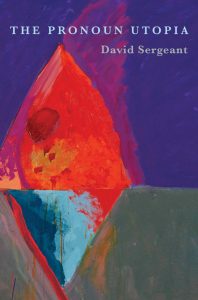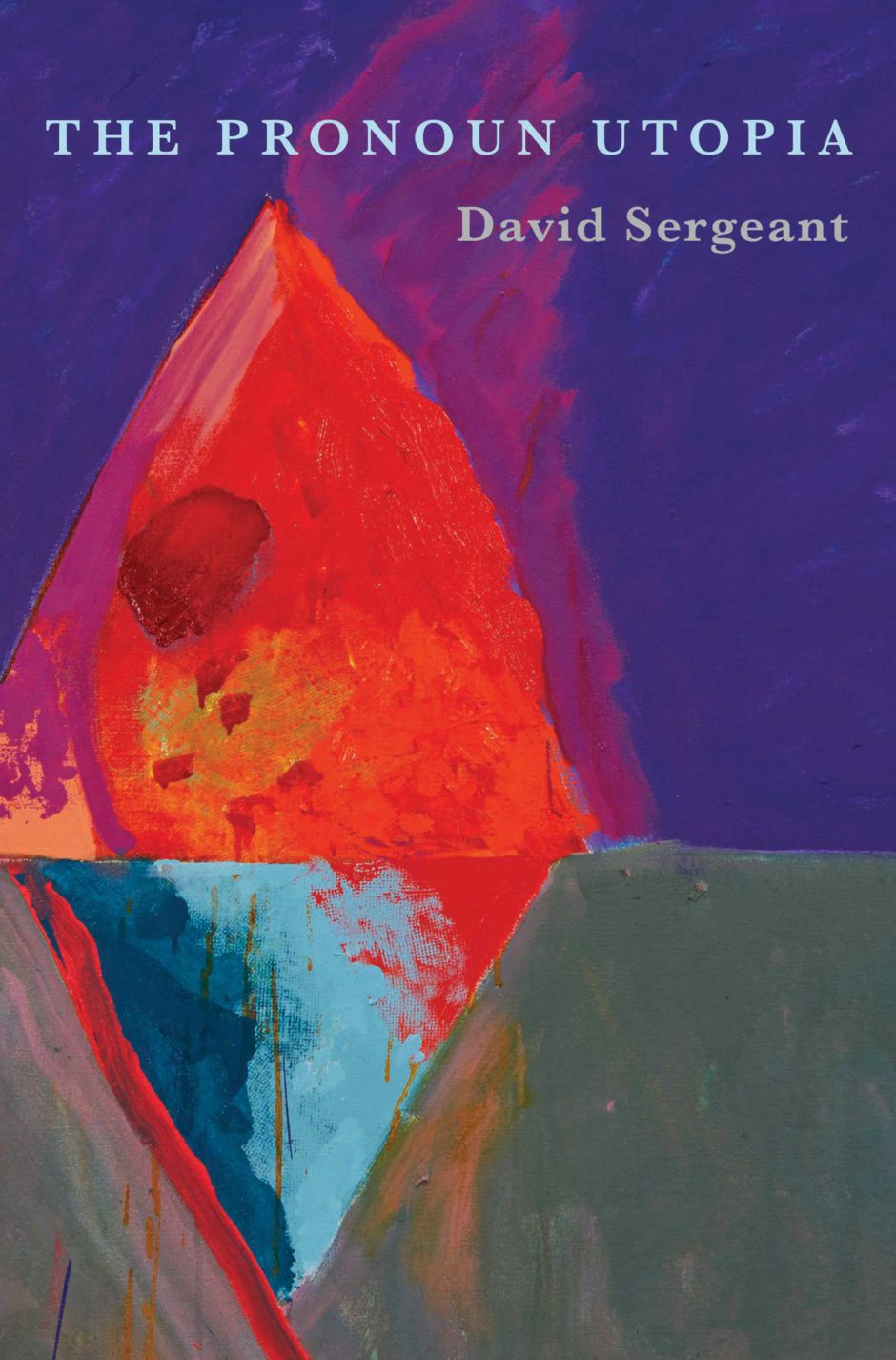
By David Sergeant
For a while now a lot of my research has been circling around ideas of utopia, and how it relates to prose fiction; a reading that has involved drawing on a range of fields and approaches, from narratology to environmental criticism. However, it wasn’t until I was a fair way into assembling my new poetry collection that it occurred to me that it was dealing with many of the same ideas as this research. I’ve always been happy to assume but leave almost superstitiously unexamined the fact that there must, presumably, be some bleed or crossover between my critical essays and creative writing; this time I couldn’t really ignore it. And becoming aware of this convergence – well, I’m trying hard to avoid the management-speak-ified word synergy here – but there was a feeling of the collection’s sinews suddenly being knitted tighter together; of older and more familiar poems shrugging off an outer skin and stepping back onto the stage in a new light, a slightly different character.
A word about the volume’s title, which a few people have asked about. It comes from the end of the penultimate poem:
… entailed in
never-quite
duplicate the pronoun
utopia.
Any idea of utopia – of living better, of making a better world – must involve the question of scale, perhaps more so today than ever before, in our age of planetary crisis: so, how do I relate to you, how do I and you become we, how does that we scale up beyond the other yous that we can see, how do we become a true commons, holding individuality and collectivity together, with no diminishment to either. The lines here attempt to keep some of these apparently discordant energies in play at the same time. And as I’m a humanities scholar, and can do this sort of thing, I’m going to invoke here, with a recklessly grand naivety, the spectre of quantum splitting and time-travel. So, to name just some of the states into which the lines collapse: ‘entailed in never-quite’, to be fixed and involved in a state of always almost existing, a perhaps catalytic always-imminence; ‘never quite duplicate the pronoun’, you’ll never do it; ‘duplicate the pronoun’, you can and must do it; and then both of these feeding into ‘the pronoun utopia’, a utopia made up of pronouns (I, you, we, etc.), and ‘the pronoun utopia’, utopia as a pronoun. And that’s not even to consider the questions raised by the spacing on the page (and in the ear): for instance, between ‘duplicate the pronoun’ and ‘utopia’, commanded action and a perhaps concluded state, with a gap – but what kind of gap? – between them …
The collection has been beautifully produced by Jennifer Grigg at the Green Bottle Press, and is available to order here.
Poetry publishers need all the support they can get, so please get yourself a copy!

